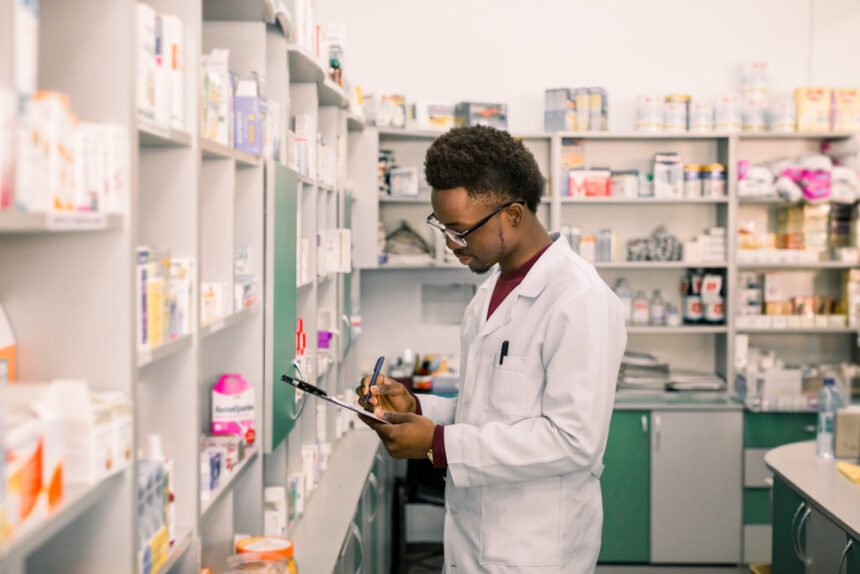Pharmacy Technicians perform a variety of duties that assist a pharmacist, such as receiving and verifying prescriptions, counting or preparing medication, and handling the cash register if in a retail environment. Pharmacy technicians work under the direction of a licensed pharmacist.
Why Become a Pharmacy Technician?
Becoming a pharmacy technician, means you are choosing a career where you will be helping people, but with its projected growth of 32% up to 2028, it has other benefits to consider like job security, excellent pay with the potential to earn more, continuous learning, rapid growth, and it can be the first step to becoming a certified pharmacist.
Becoming a pharmacy technician is an excellent choice if you enjoy working with people, are patient, empathetic, helpful, tech-savvy, and dependable. You must be interested in pharmaceuticals and medicines that will help injury and illness.
Below are a few steps to help you get a pharmacy technician certificate and start your career.
Step 1: Complete Pharmacy Technician Program
Many employers require job applicants to have completed a certificate or associate degree from an accredited school, such as pharmacy technician certification from UMA. Programs last one to two years, and you will learn and become familiar with medications, pharmacy procedures, pharmaceutical terminology, and pharmacy law. Through the programs, you can participate in an internship. An internship allows you on the job experience and to learn more information and skills under the supervision of a licensed and professional pharmacy technician.
Step 2: Be Familiar with State Requirements
Many states have their own regulations for pharmacy technicians, as noted with the US Bureau of Labor Statistics. The rules could include formal training, continuing education hours required, exams, and fees. If you want to become a pharmacy technician, then you should check in your states’ Board of Pharmacy to see what is needed to become a technician.
Step 3: Become Certified
It’s not mandatory in all states for pharmacy technicians to be certified, but getting certified could help when trying to seek employment. The two organizations that offer exams for certification are the Pharmacy Technician Certification Board (PTCB) and the National Healthcare Association (NHA), bot these entities provide a Certified Pharmacy Technician (CPhT) title. To become certified with NHA, you do need to complete the pharmacy training program and have at least one year of experience working as a pharmacy technician. To keep your certification in pharmacy technician, you do need to pass a recertification exam every two years, along with 20 hours of continuing education.
Step 4: Resume Tips
The next step to getting a job as a pharmacy technician is you first need a resume that will get you noticed. There are always specific skills that hiring managers are looking for in candidates. Be sure to include these skills, knowledge, and qualities in your resume, such as excellent attention to details, comfortable working with numbers, customer-oriented, good with computers, organizational skills, a strong commitment to ethics, able to work as a team, and high accuracy in data entry. If you are still gaining job experience, include items such as this on your resume:
● Experience and knowledge in working in customer service, retail or stock rooms
● Volunteer experience, in hospitals or nursing homes
● Familiar with medical terminology
● And additional strengths that can be listed
Review the job description posted and contain the essential qualities that the hiring managers are looking for in your resume to help you get the job as a pharmacy technician.
Outlook & Income
The average income reported by the Bureau of Labor Statistics is $30,000 for pharmacy technicians. It’s a career that gives you satisfaction as you are helping people, and it opens up other opportunities in the medical field that you could pursue in the future.

